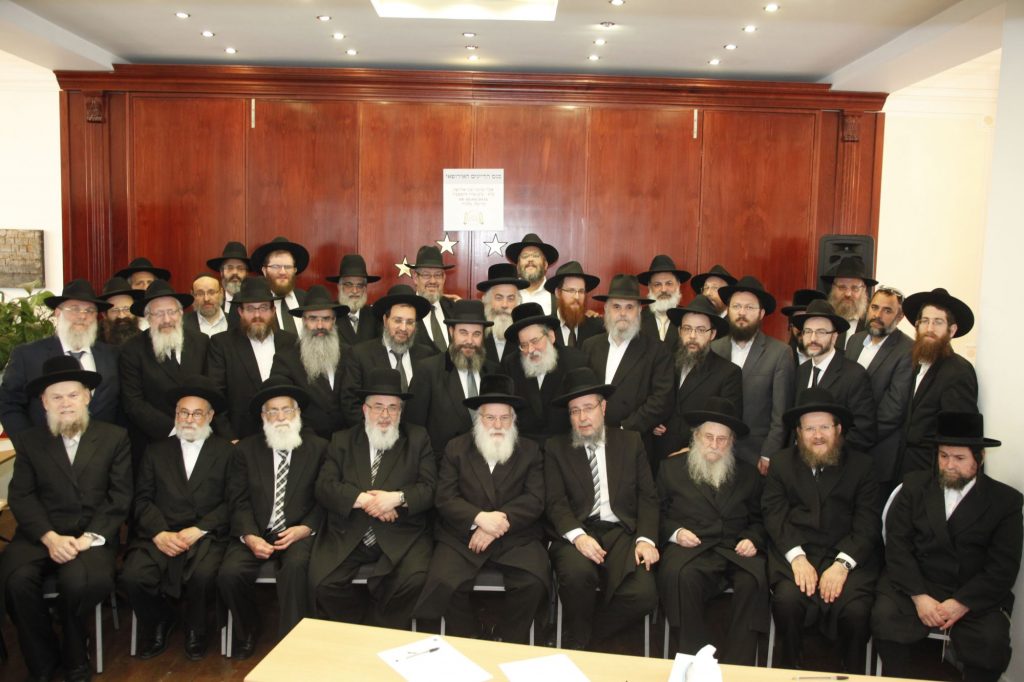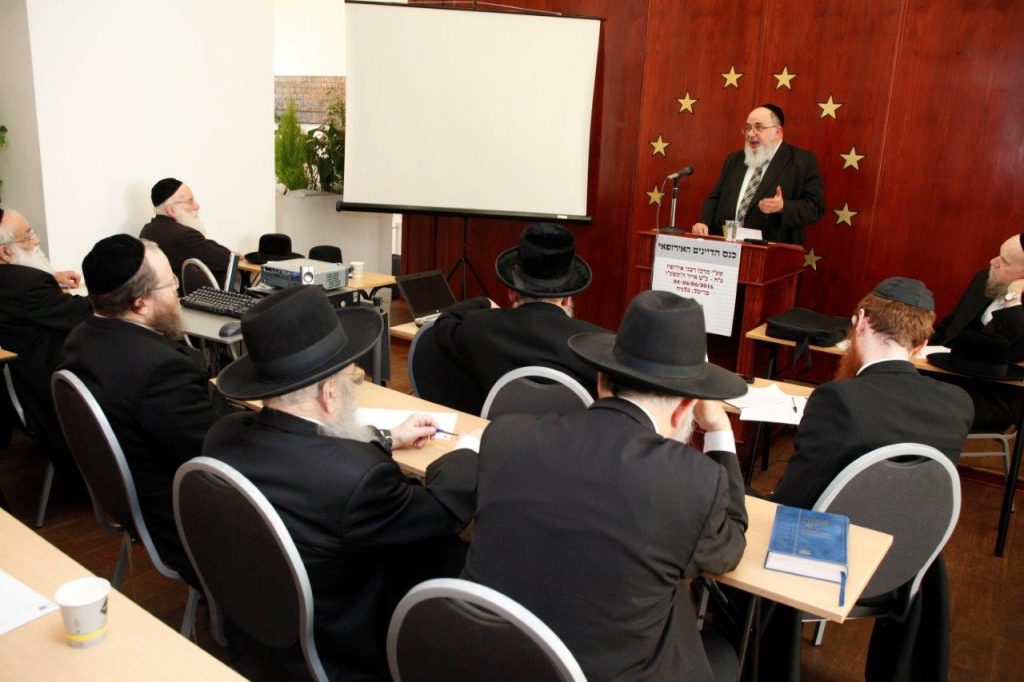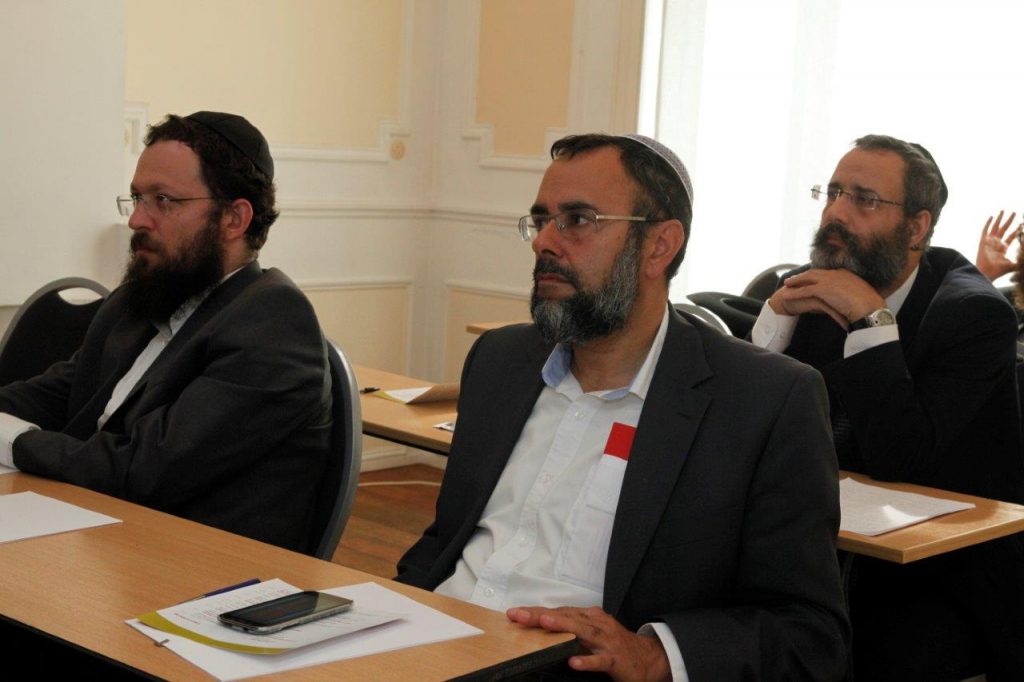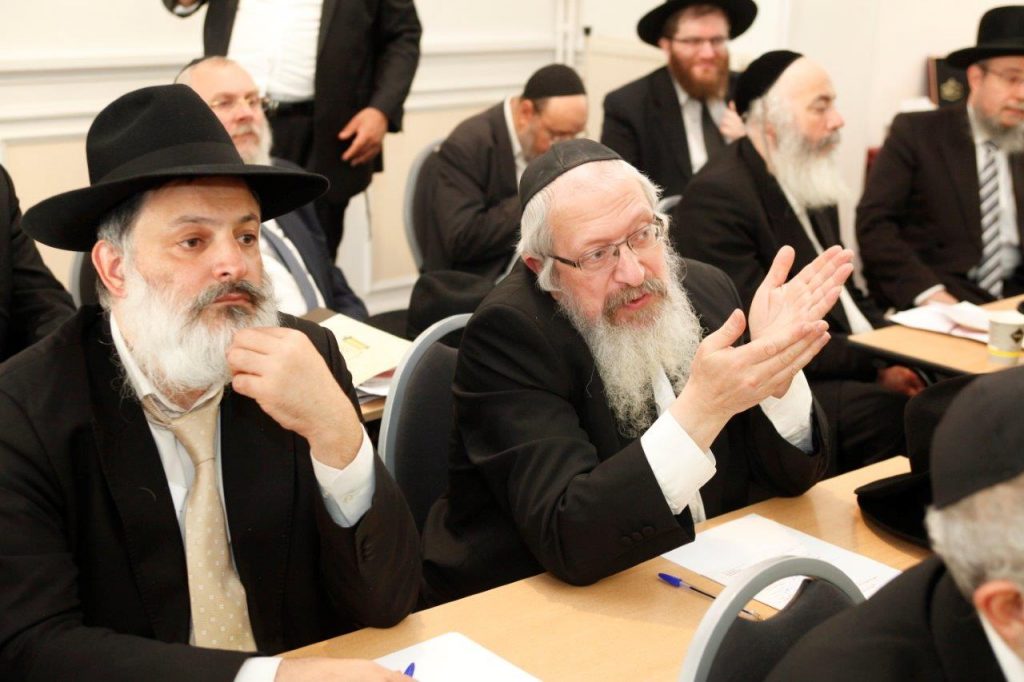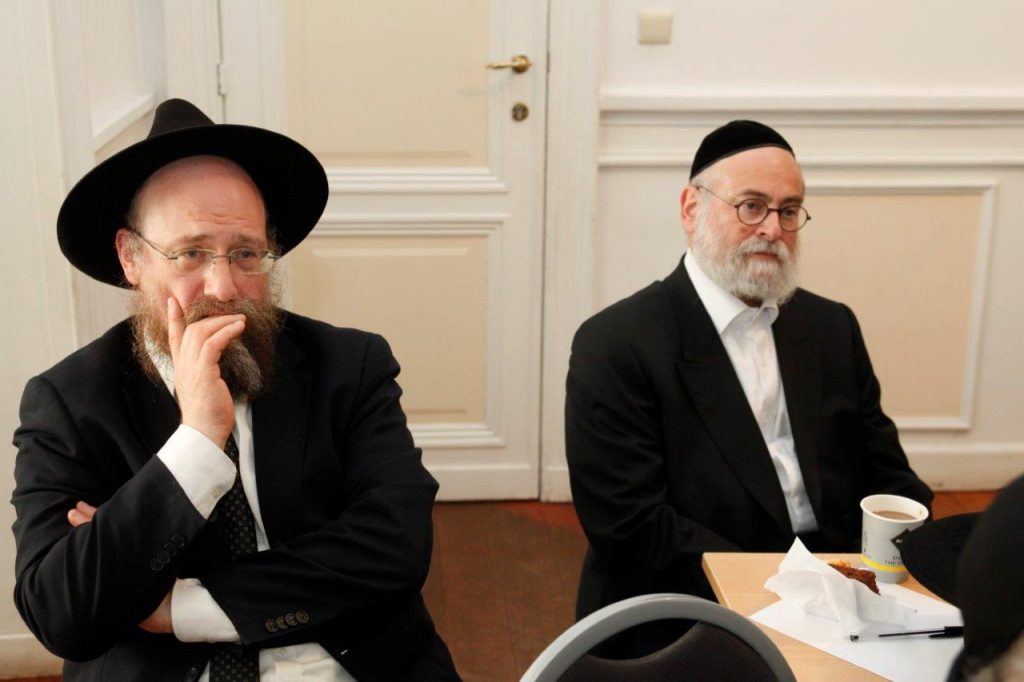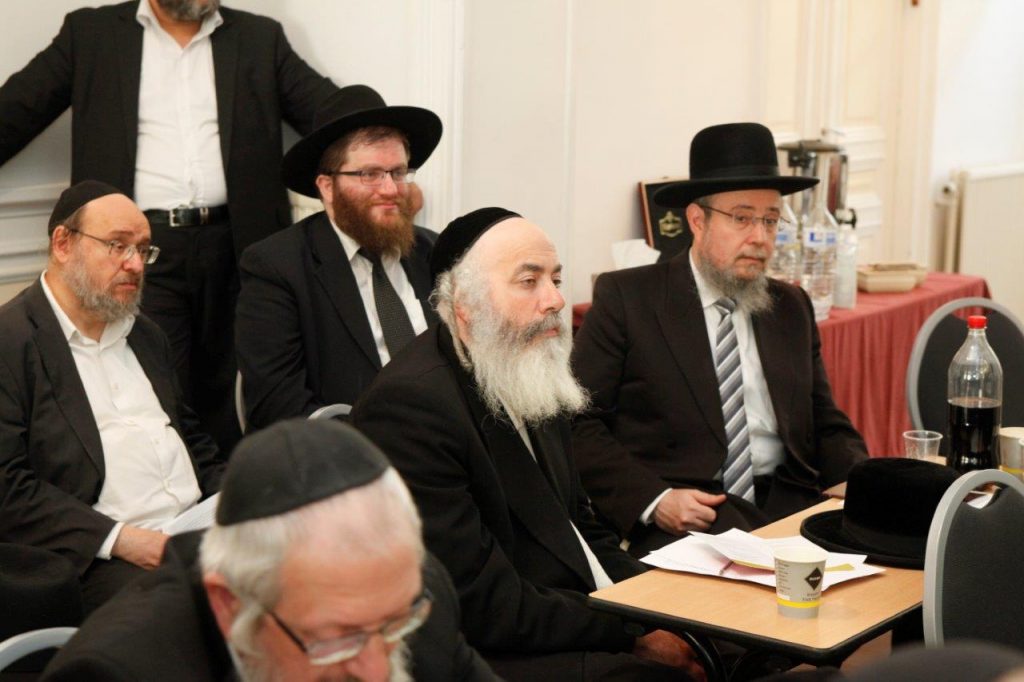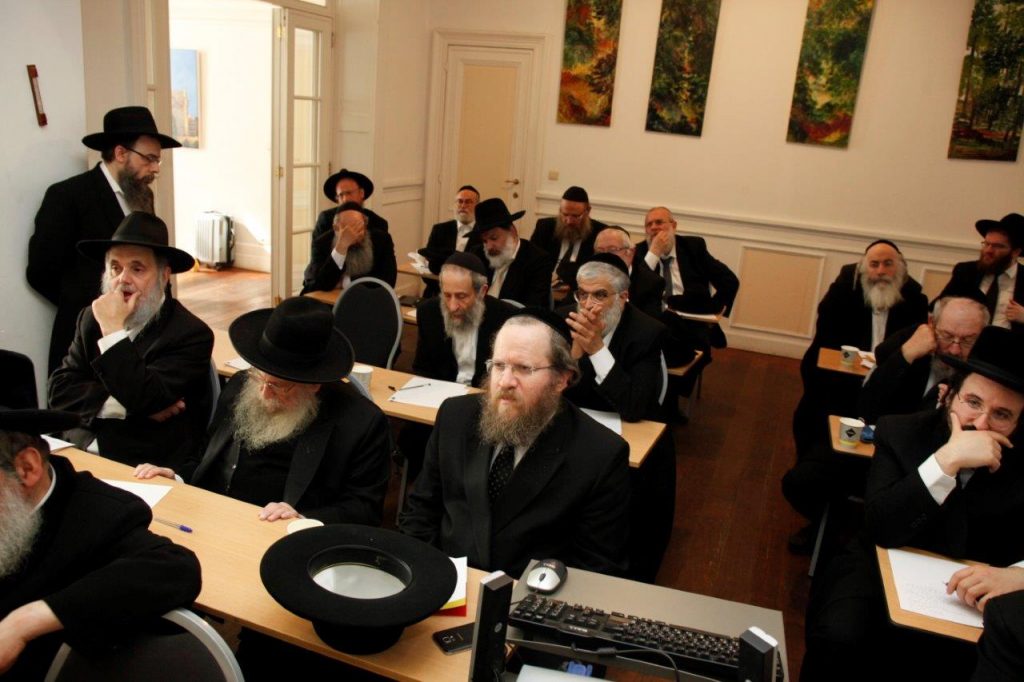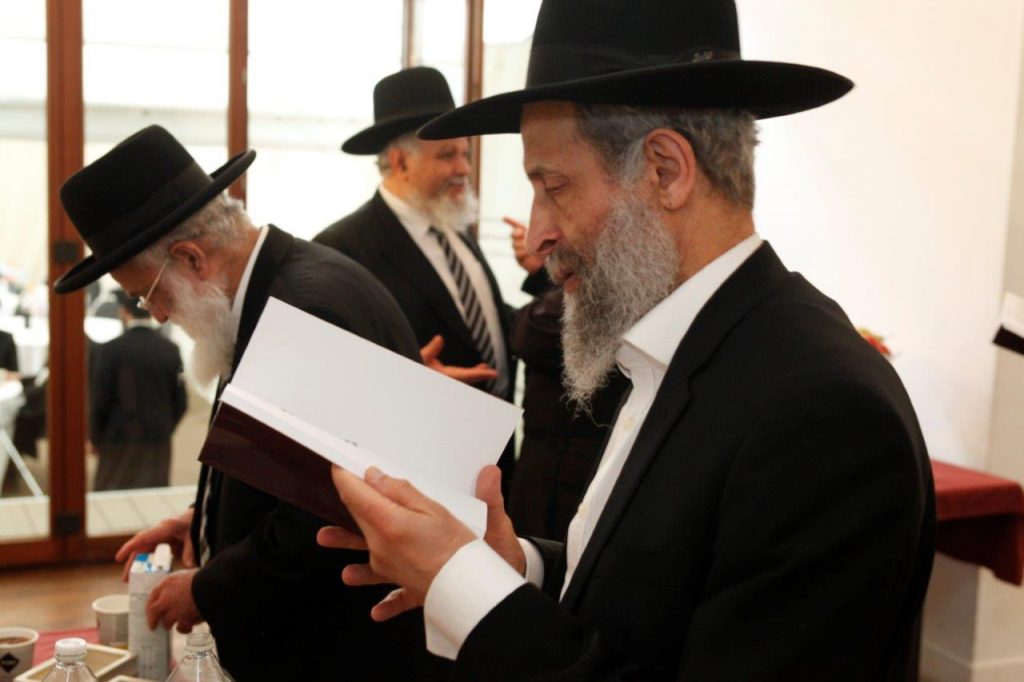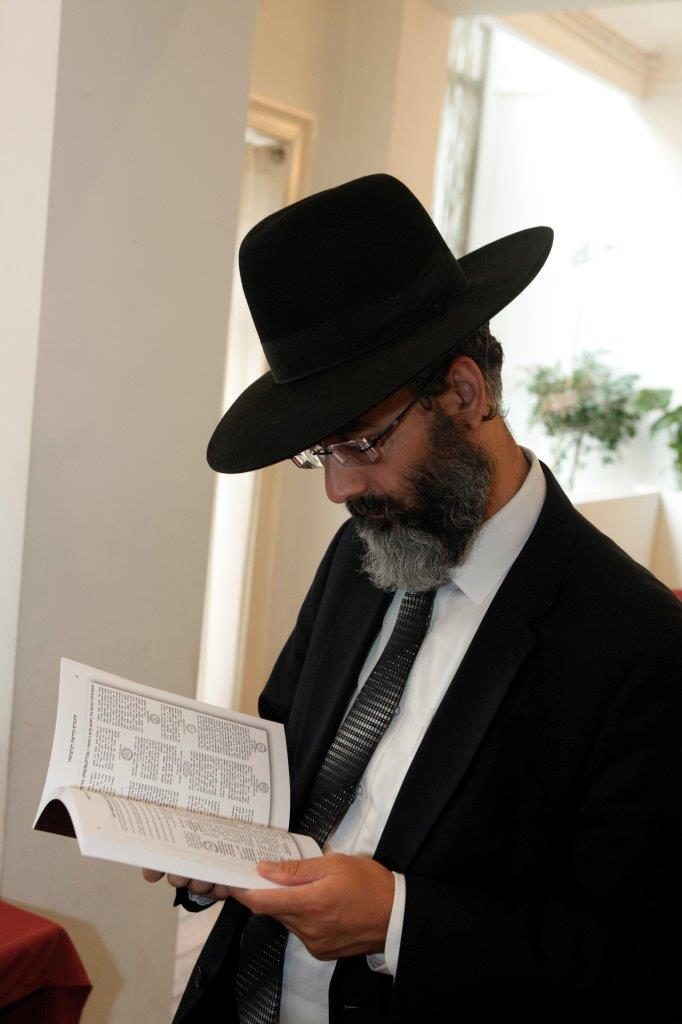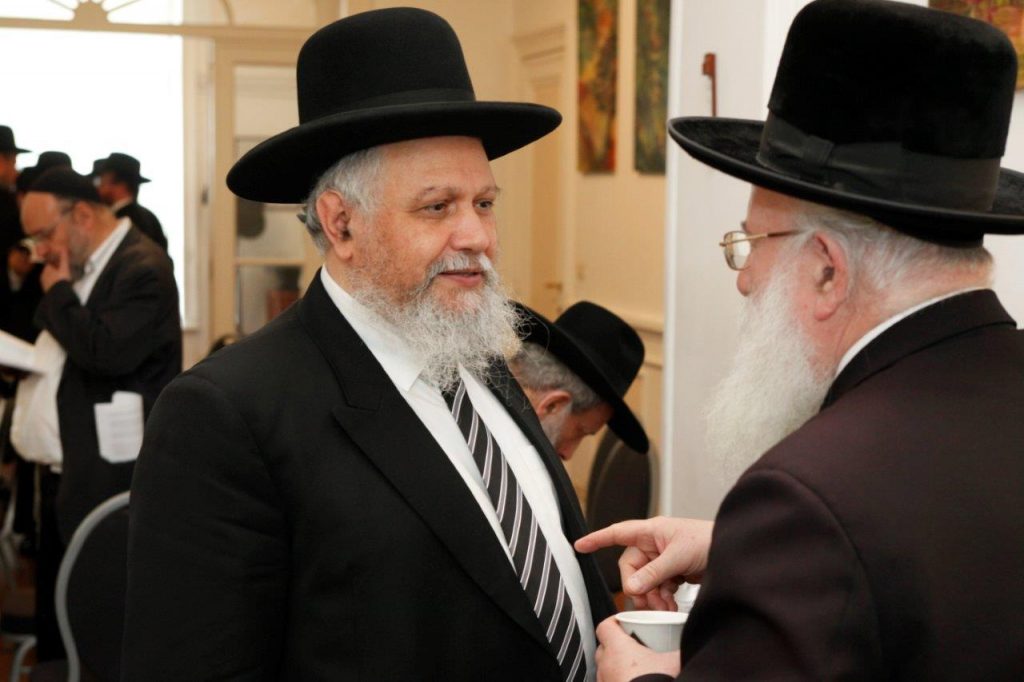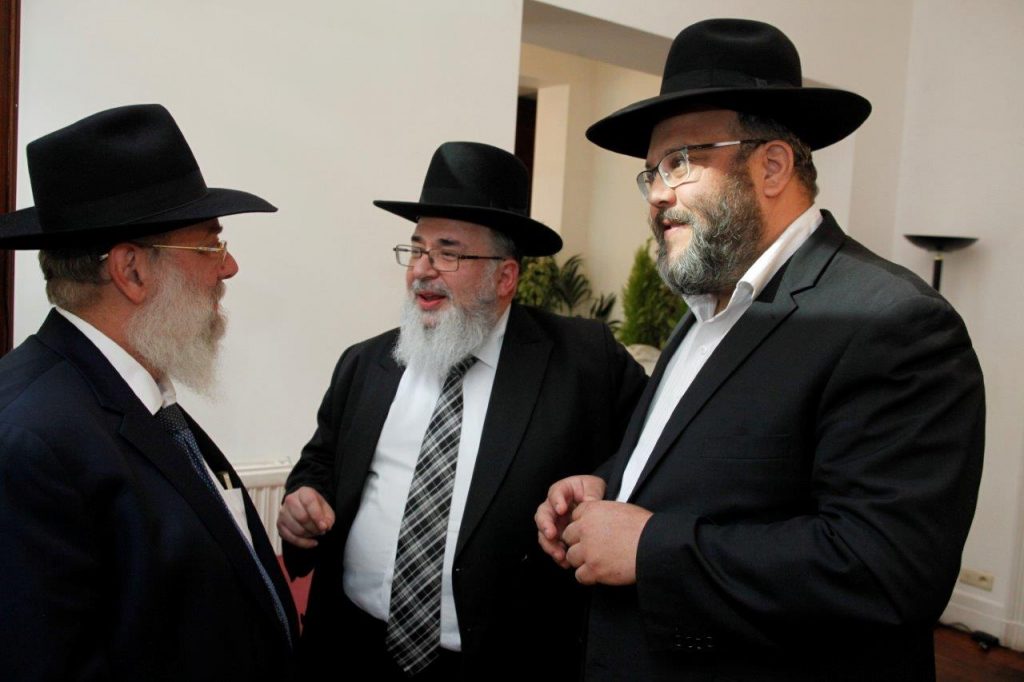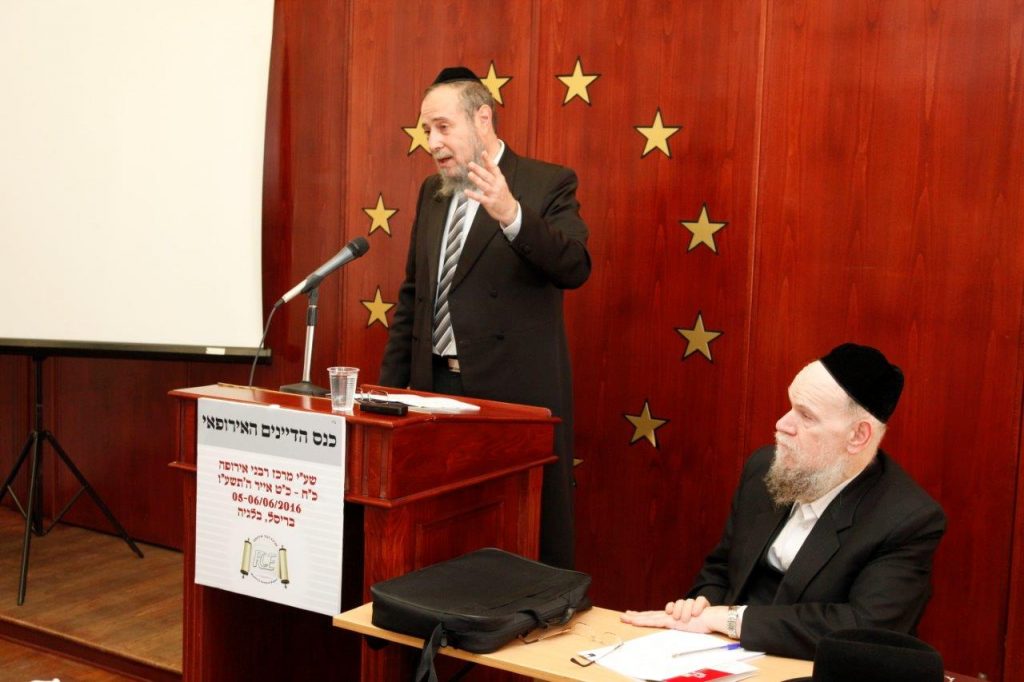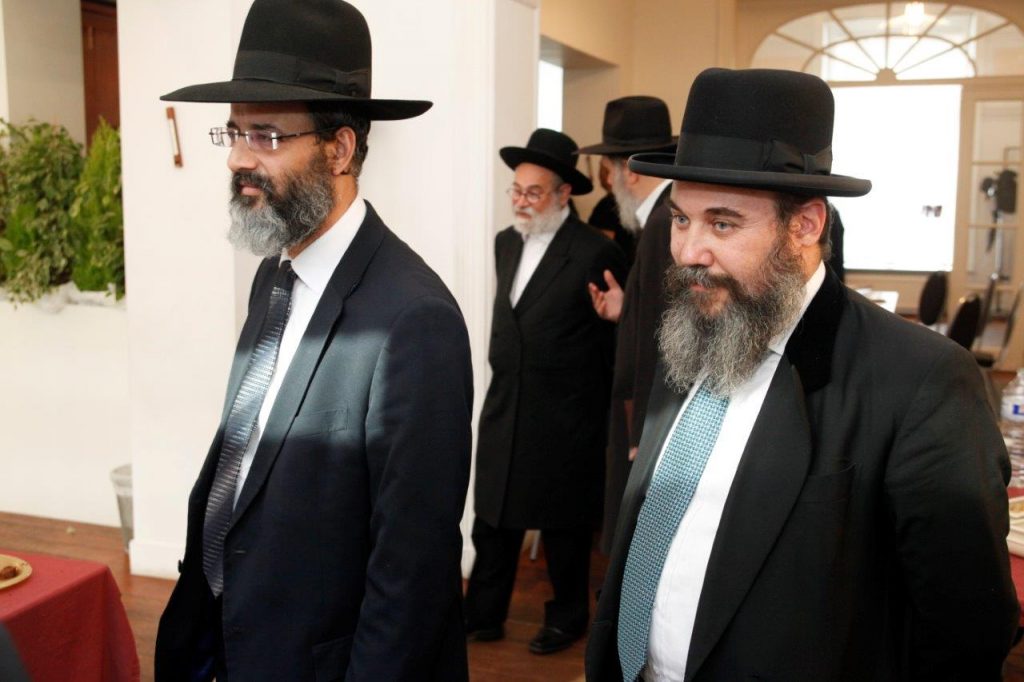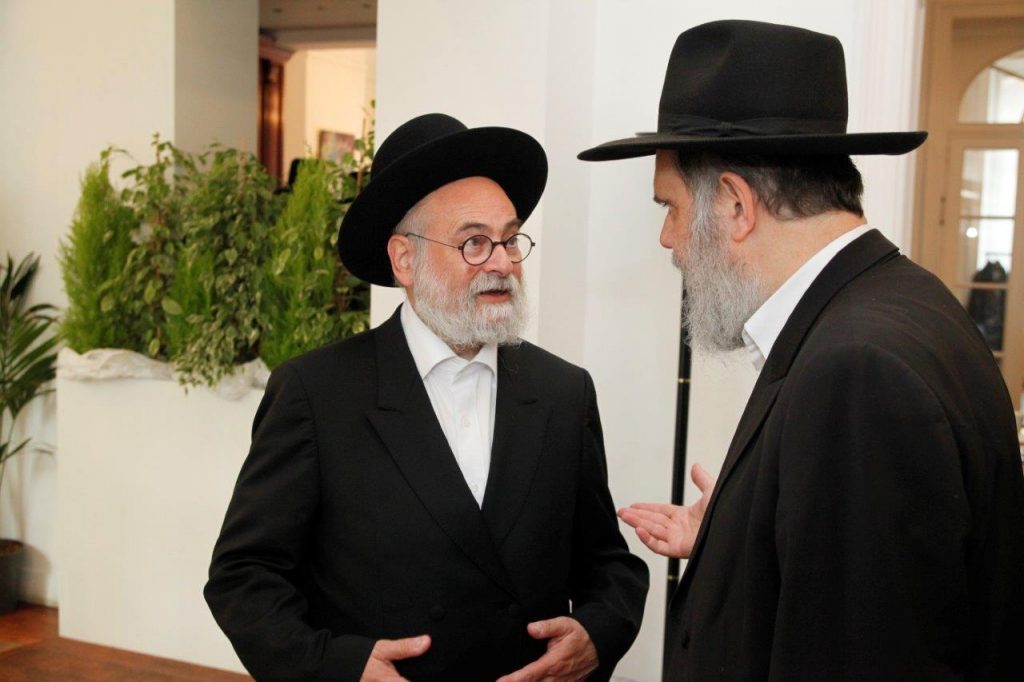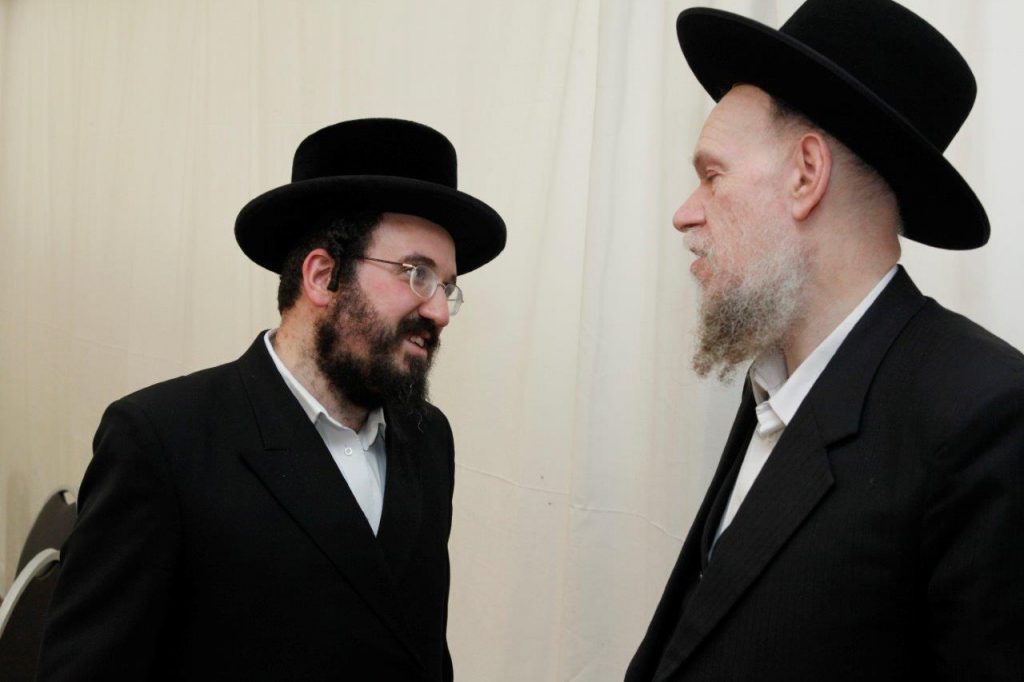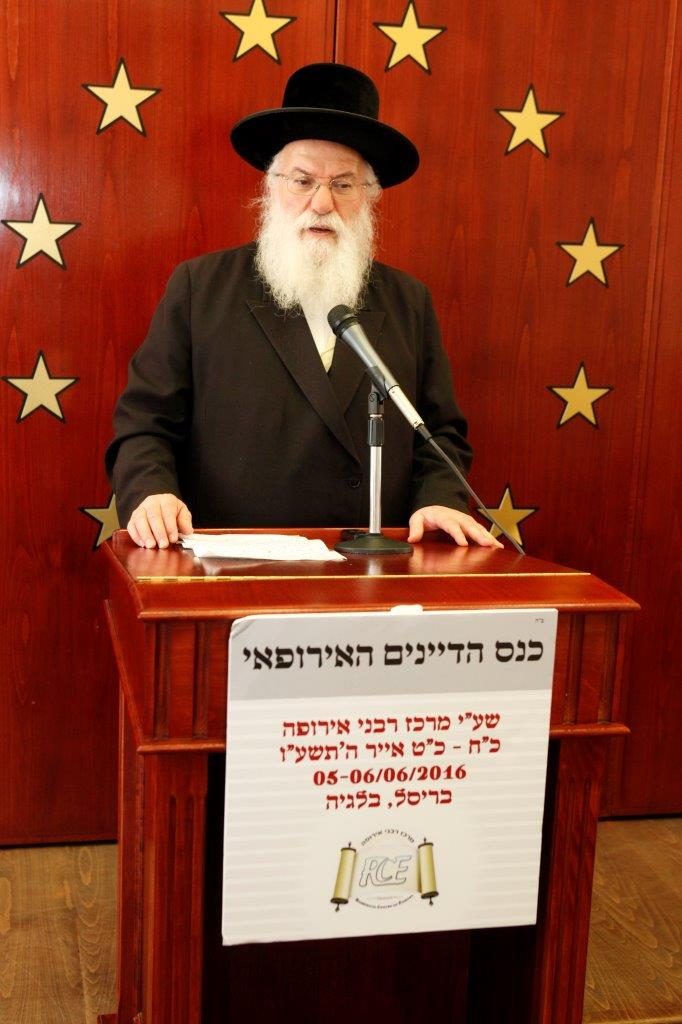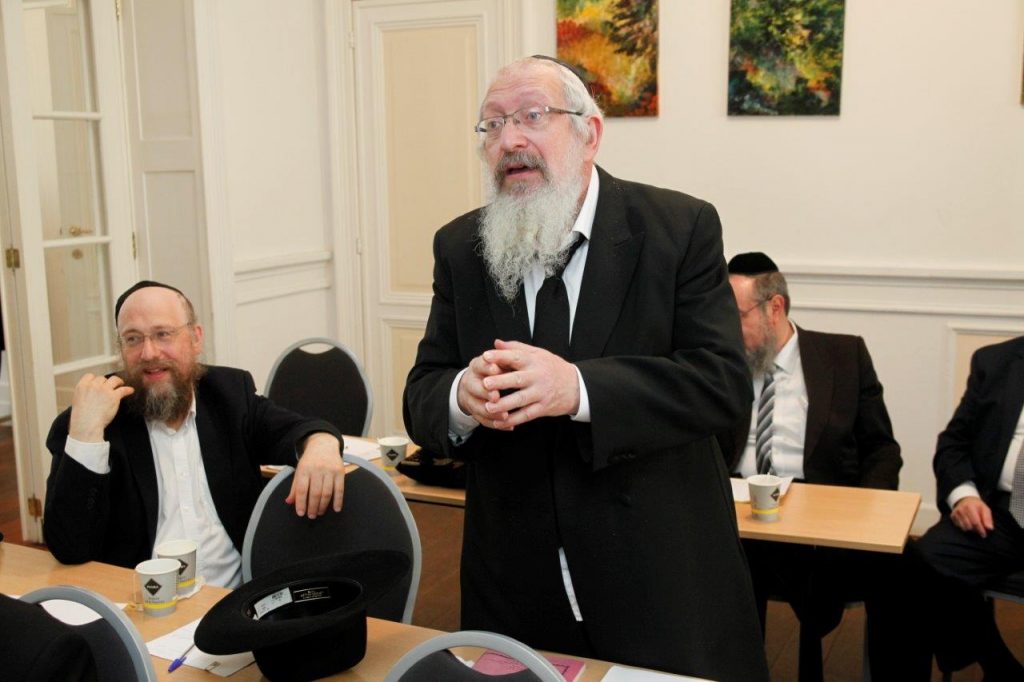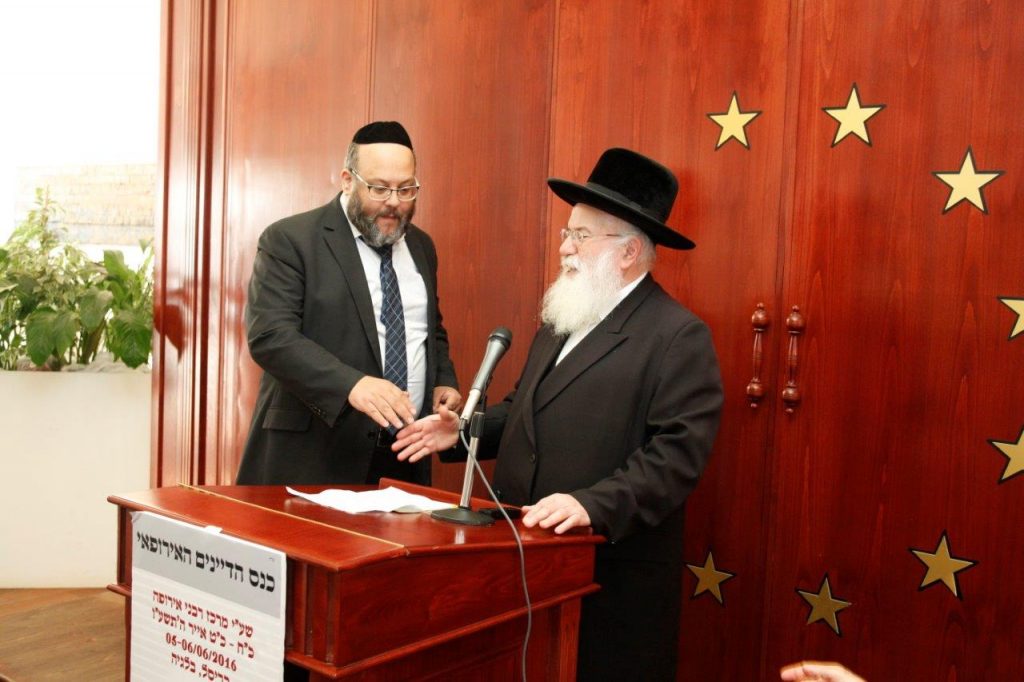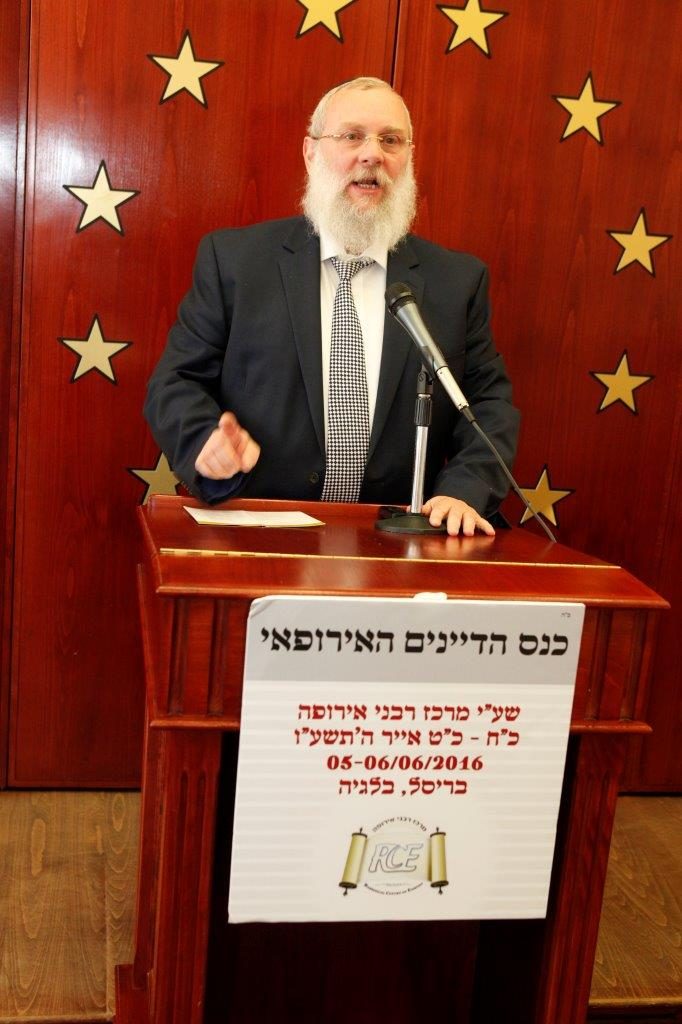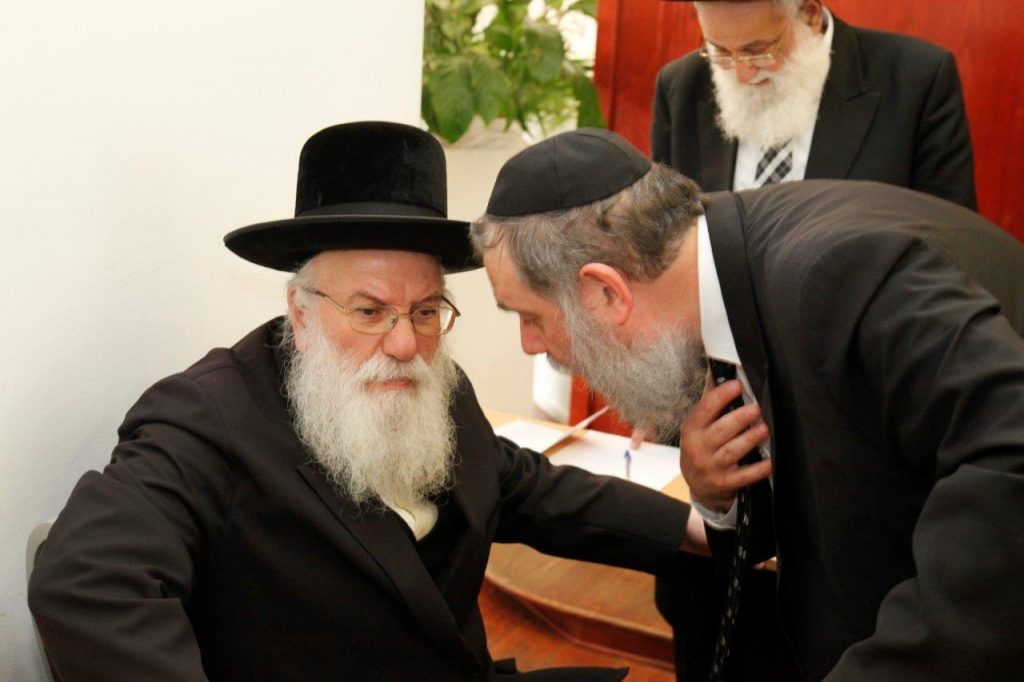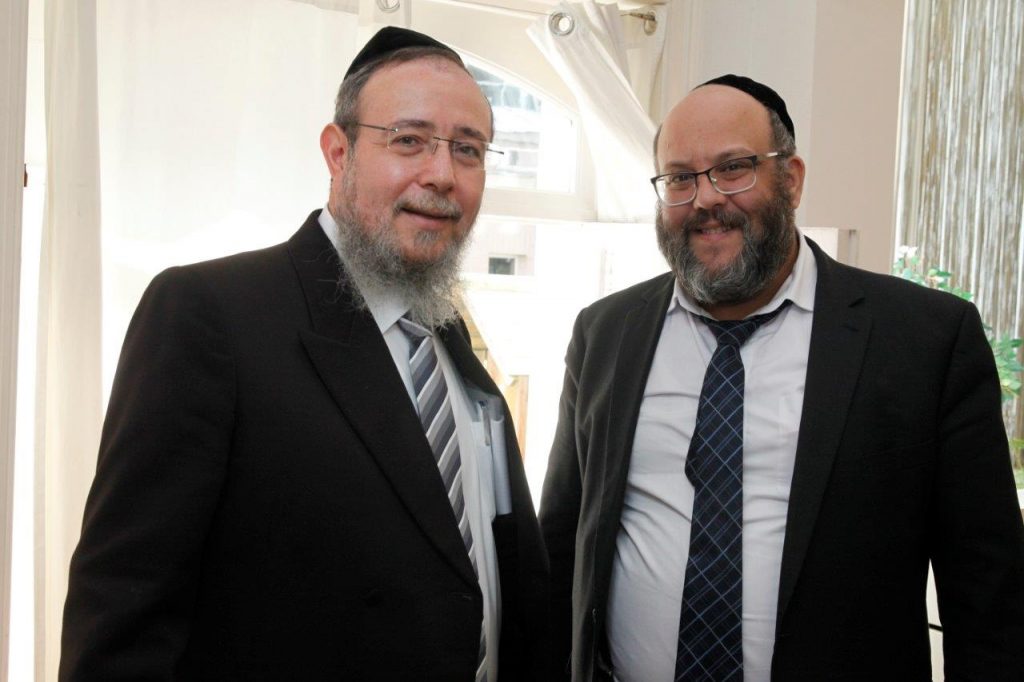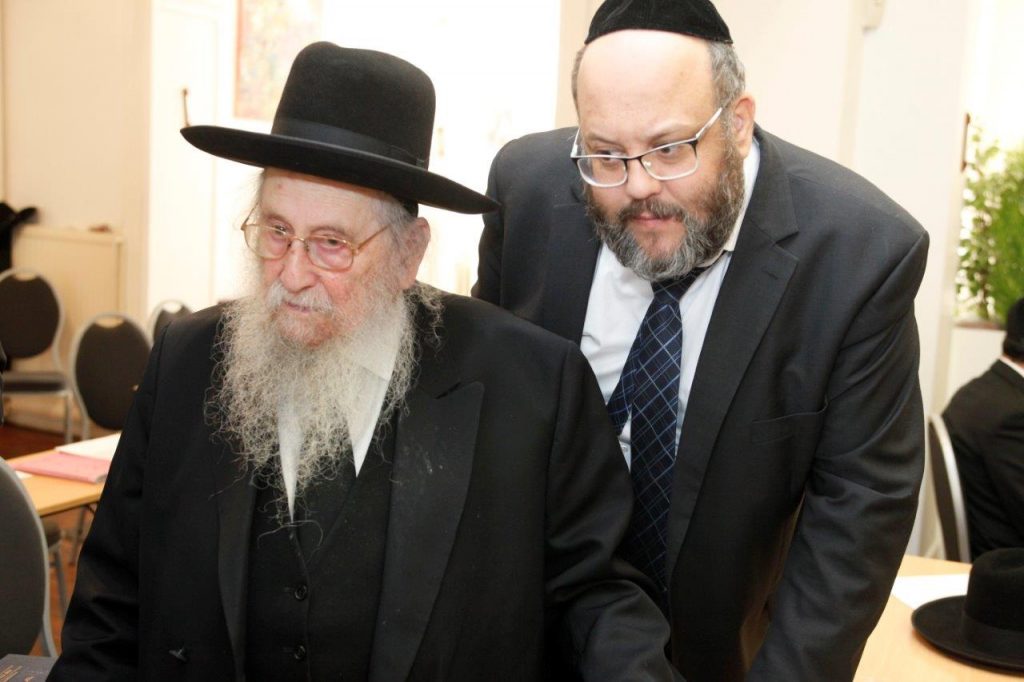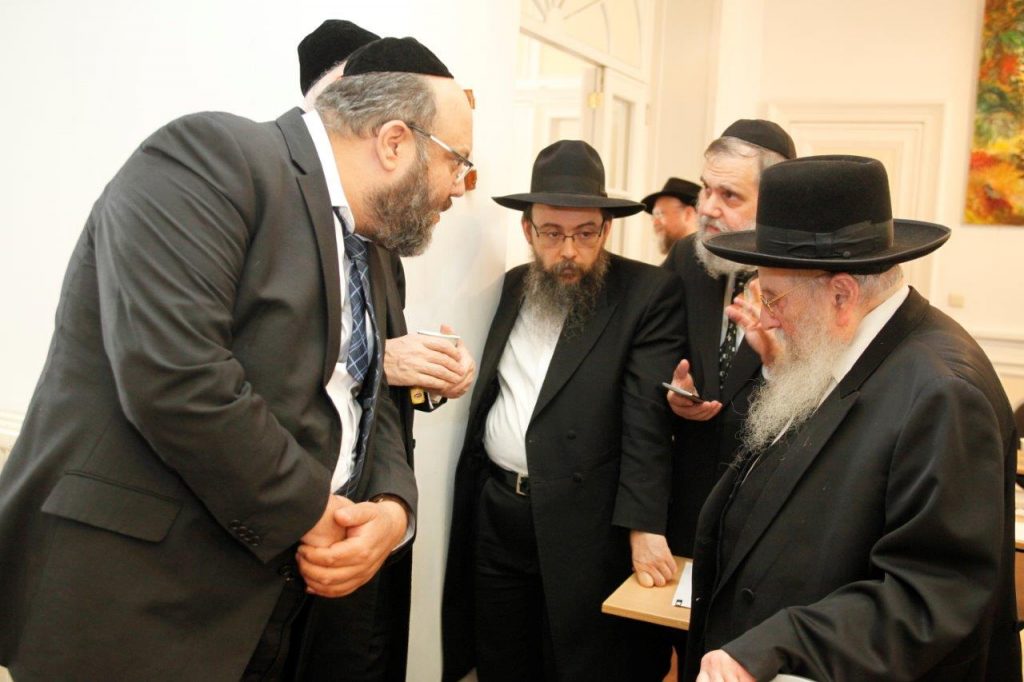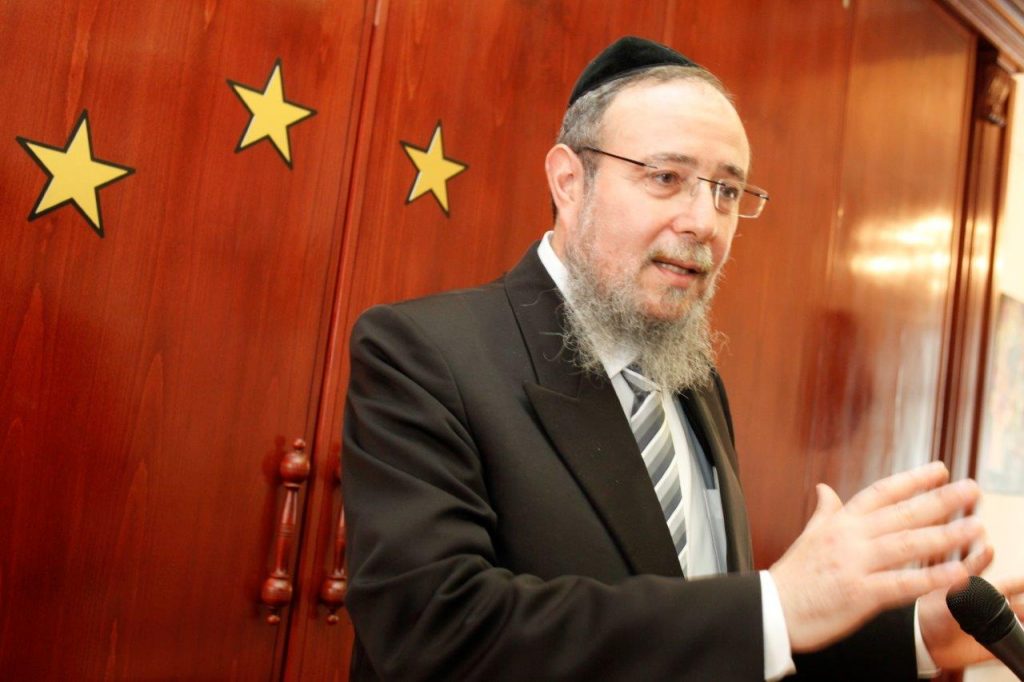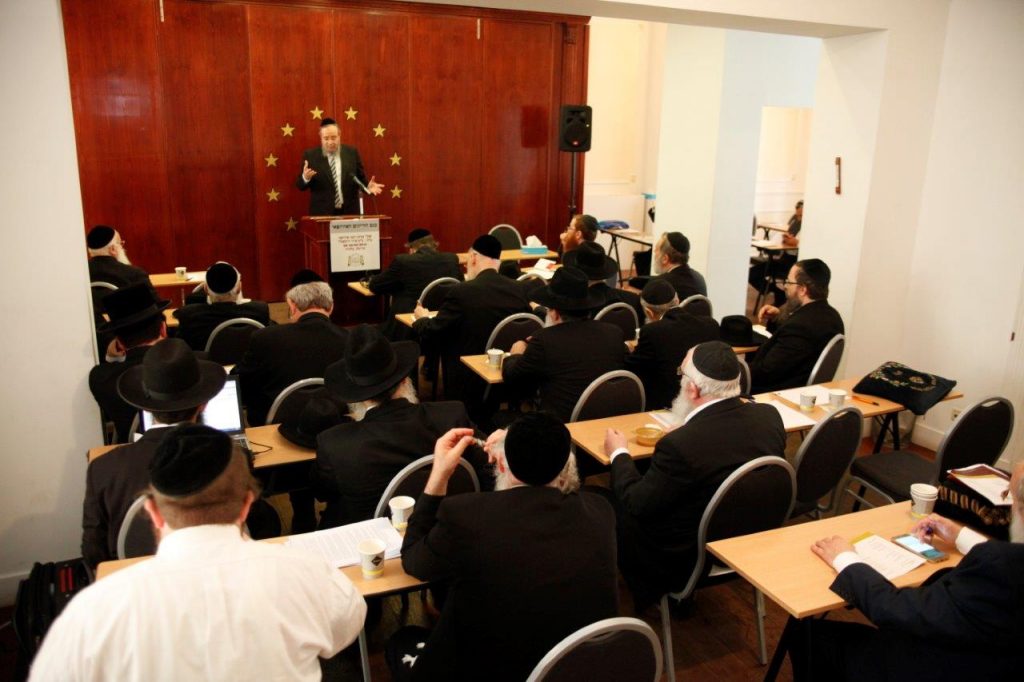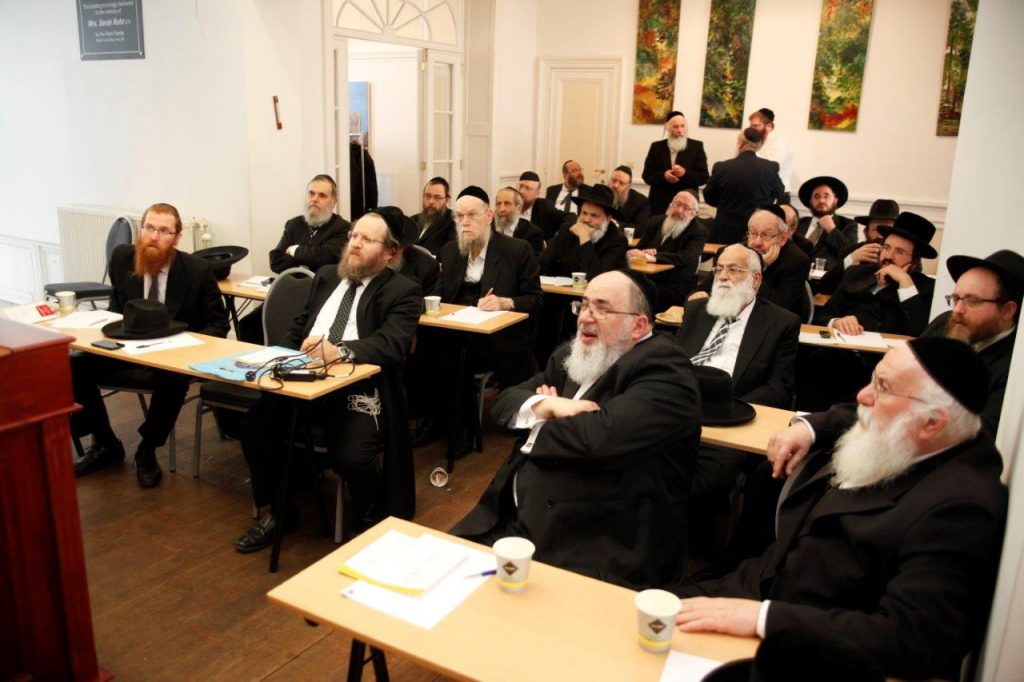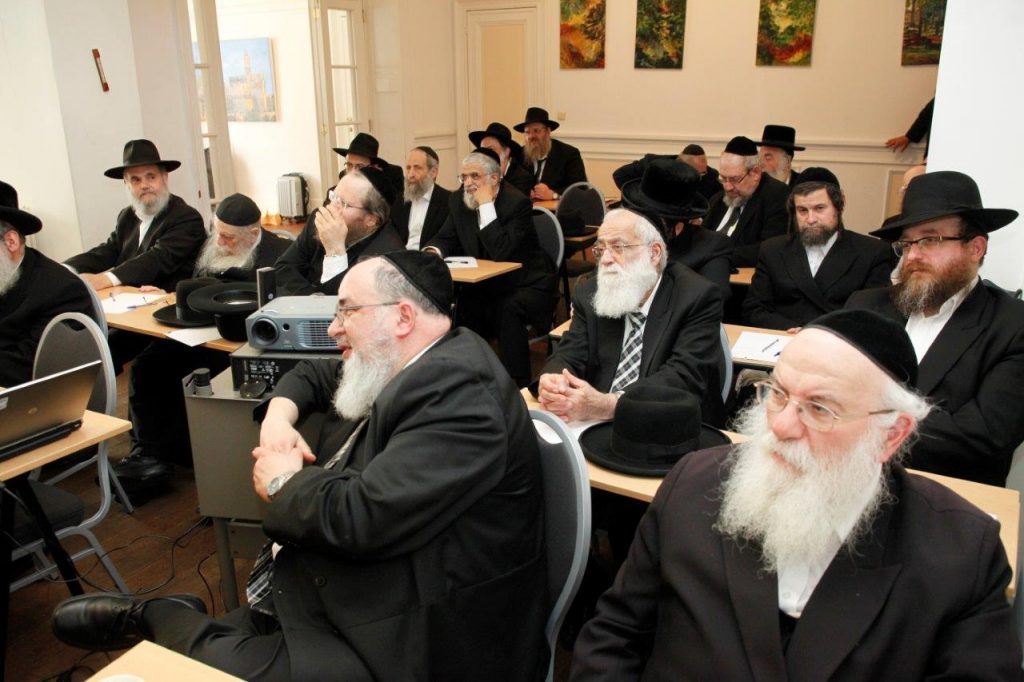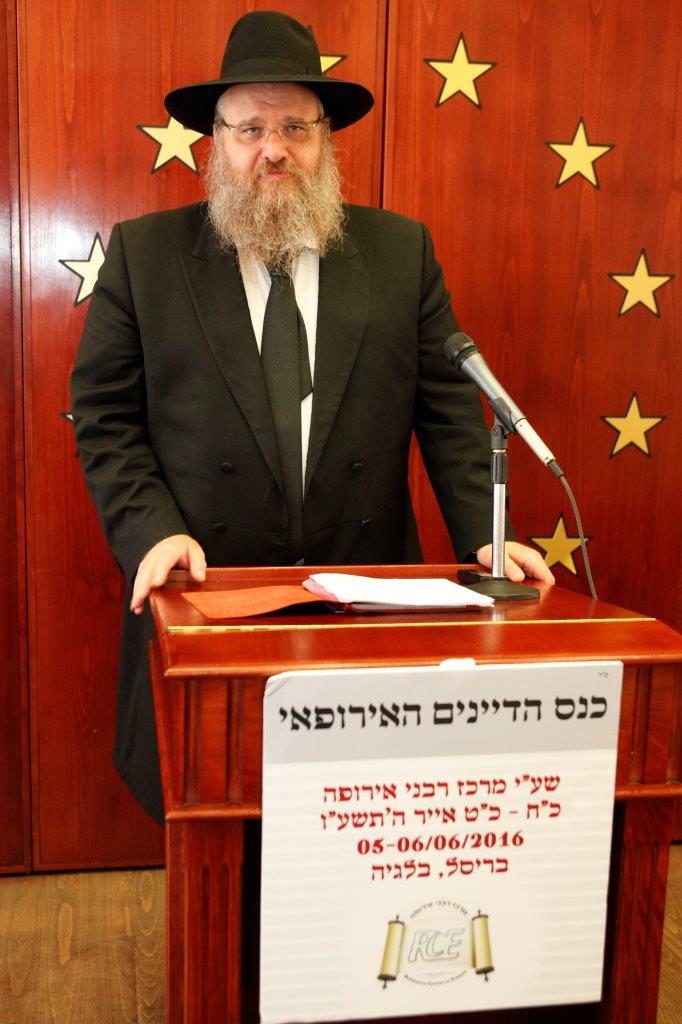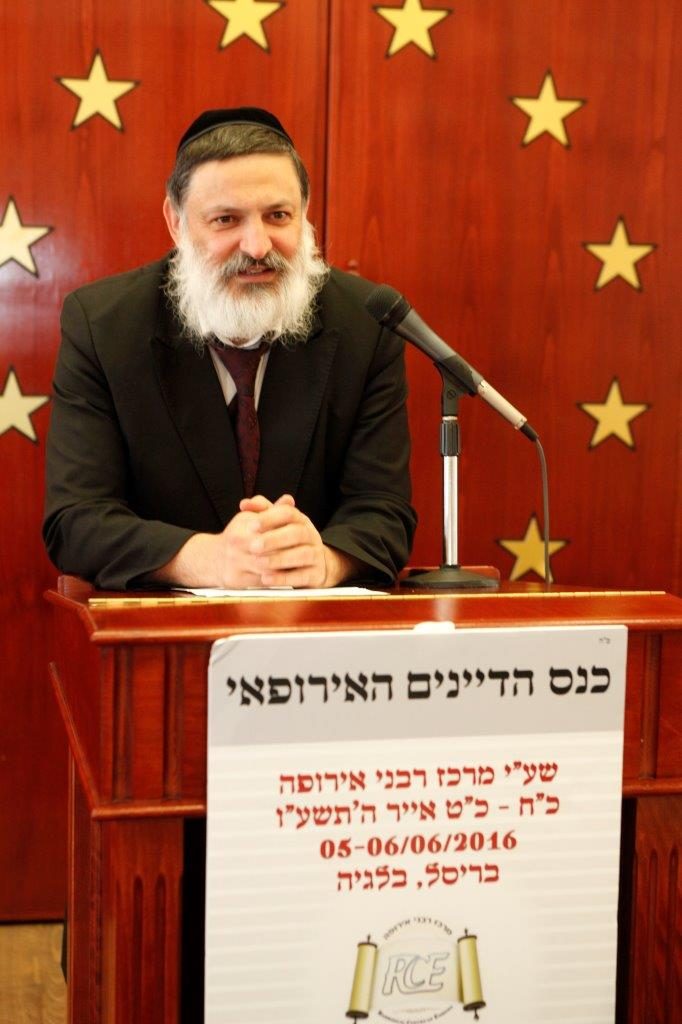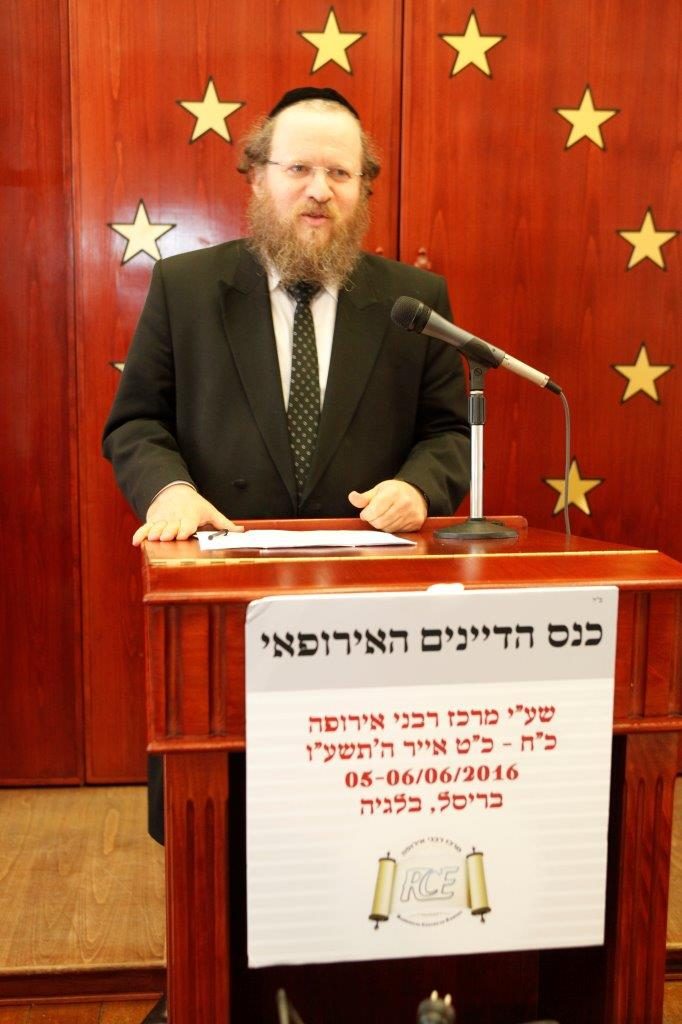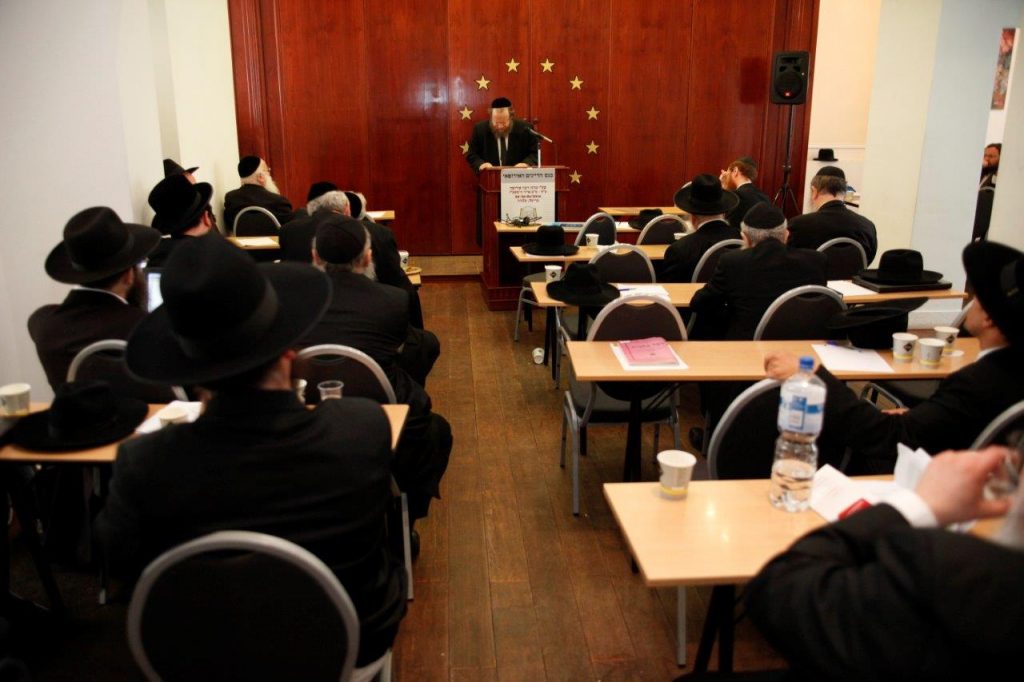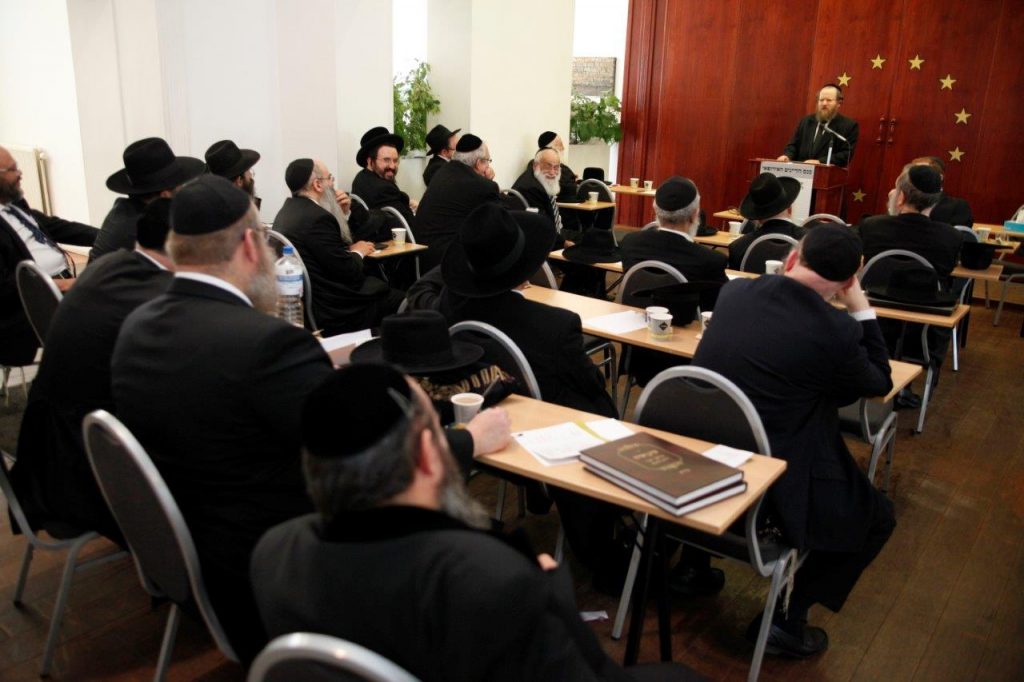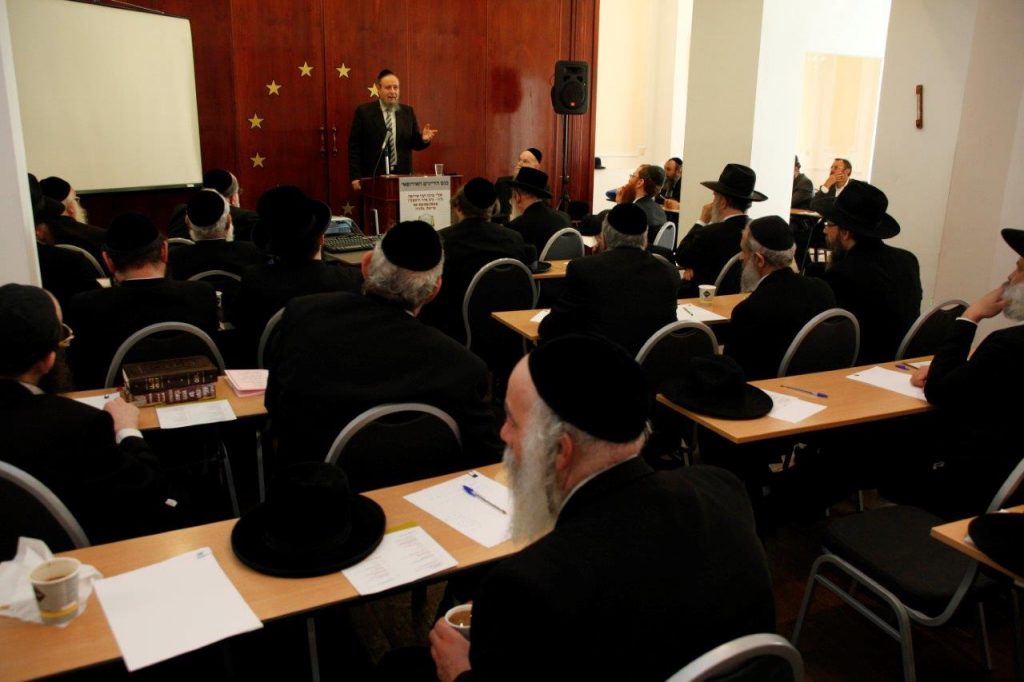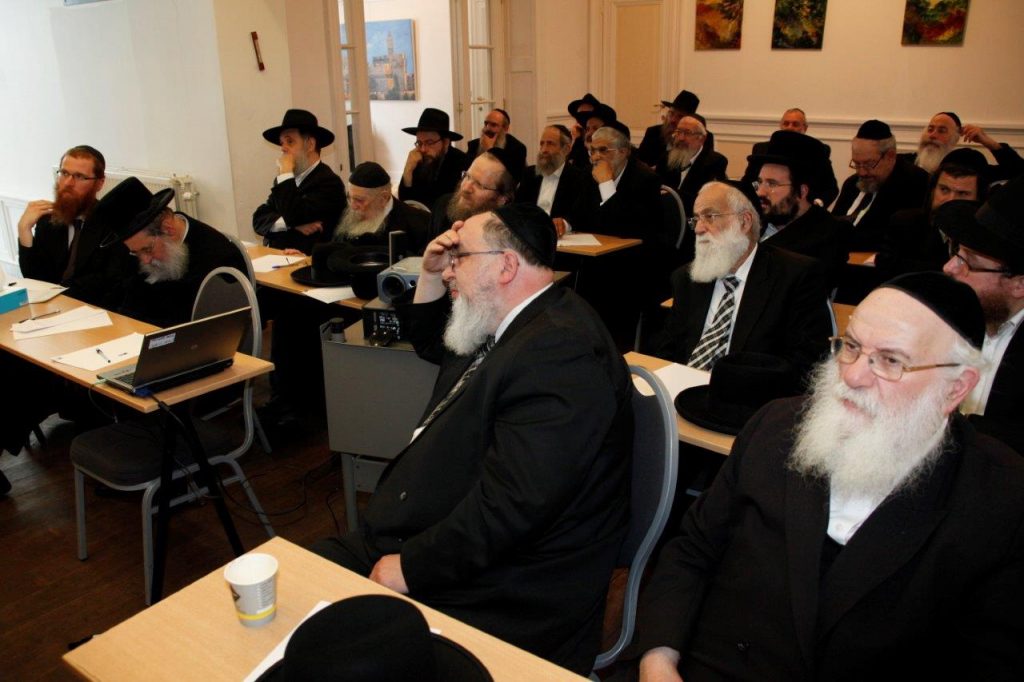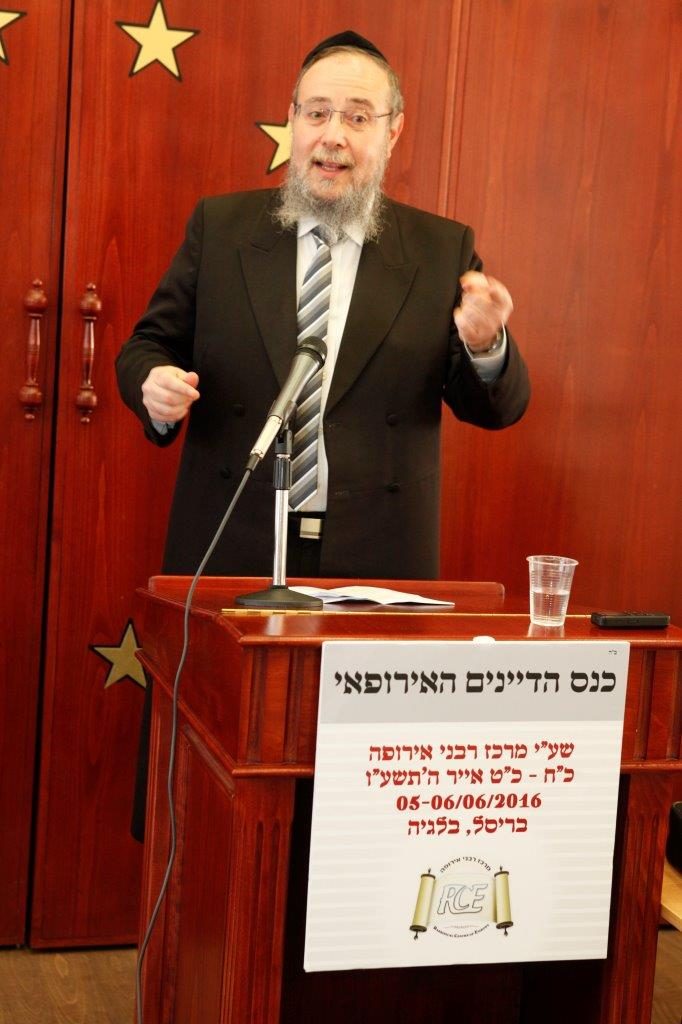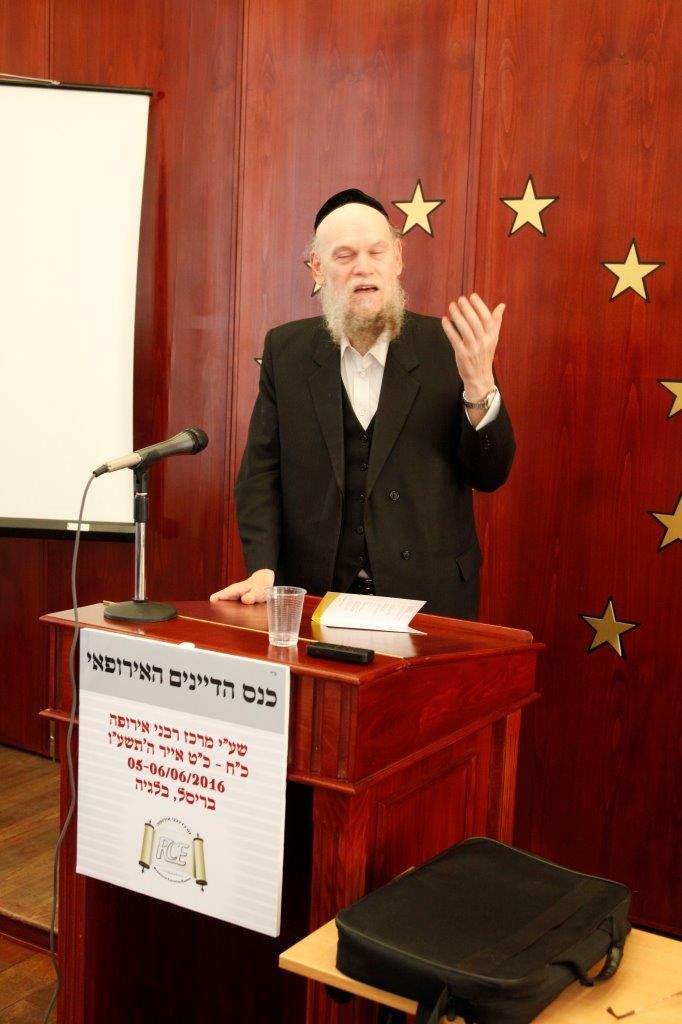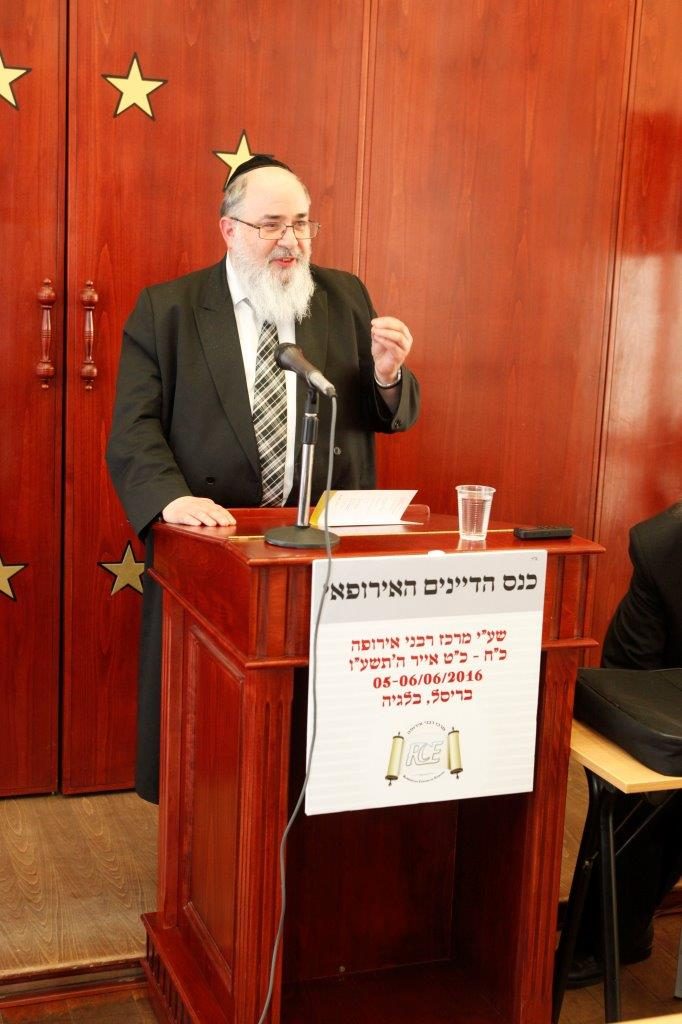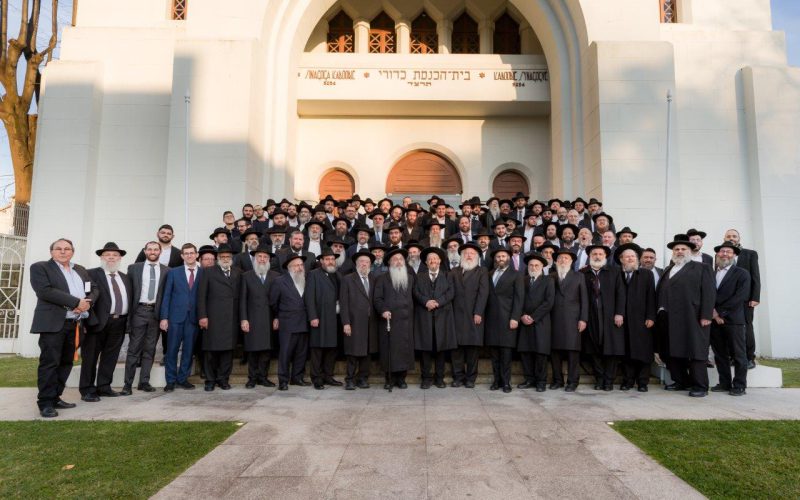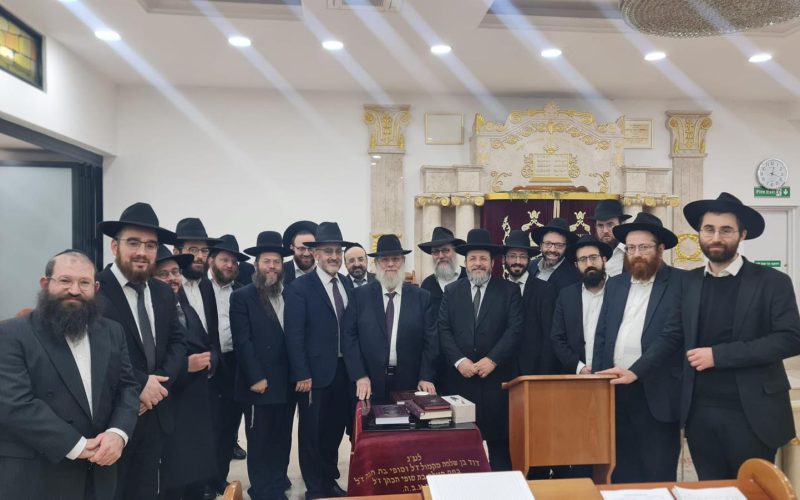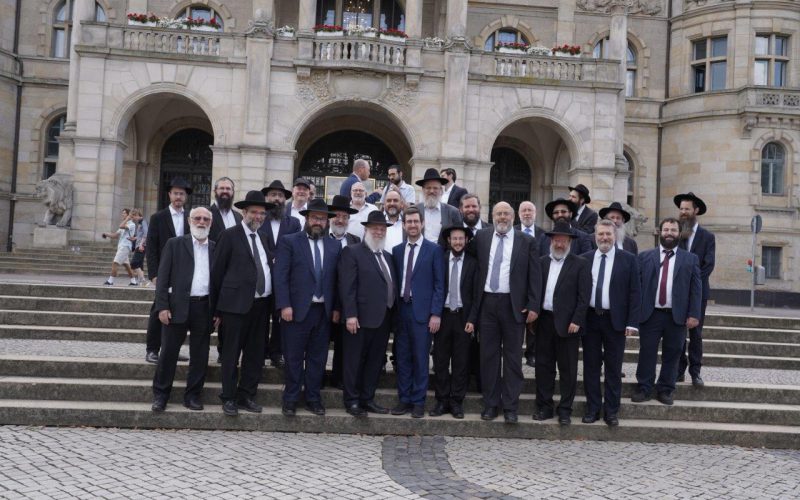Conference of European Dayanim in Brussels
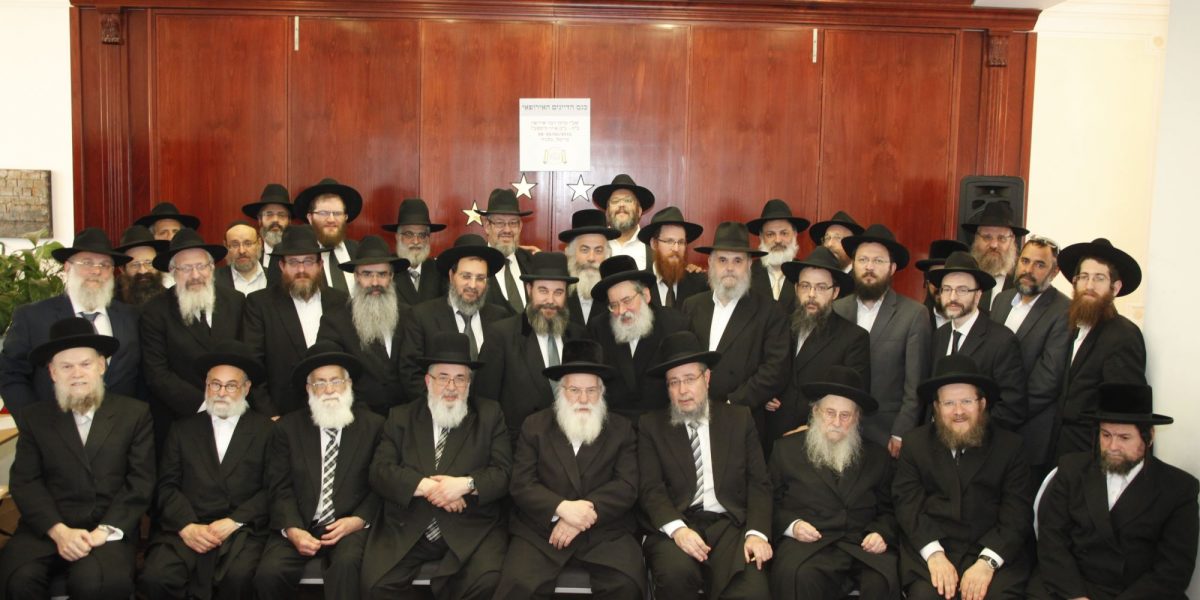
The European battei din are in the process of establishing a joint information network, which will publicize the names and photographs of men who refuse to grant a get to their wives and who thus hold them captive as agunos. This network will make it easier to locate and identify these men, and Jewish communities will be able to refuse to grant them any religious services. Furthermore, with the cooperation of all community rabbis, these men will be subjected to the humiliation of not being counted in a minyan and not finding people willing to host them. It is hoped that through these measures, the men will be pressured to grant their estranged wives a get. The decision to set up this information network was made during the recent RCE-sponsored conference of European Dayanim, which was held in Brussels.
Dozens of Dayanim from many European countries attended the conference, which addressed a number of issues that are vital to Jewish life in Europe. One major issue that was dealt with was the need for the various battei din in Europe and throughout the world to cooperate with the Israeli Rabbinate’s division for dealing with the plight of agunos. Rabbi Eliyahu Maimon, director of the Israeli Rabbinate’s division for agunos, spoke to the Dayanim, describing vividly the Rabbinate’s struggle with these stubborn men and the efforts and resources that were invested in finding them.
Rabbi Maimon’s words prompted an animated discussion among the participating Dayanim as they sought ways to alleviate this deplorable situation. They agreed unanimously to establish an information pool, together with the RCE, where all pertinent information about the guilty husbands, from the European battei din and the Israeli Rabbinate, would be available.
Rabbi Menachem Margolin, director of the RCE, announced that the RCE would use its many connections with the European Union and European governments to strengthen the authority of the battei din with these governing bodies, enabling them to impose sanctions on these men. According to the proposal, the Dayanim will ask the local authorities in their respective European countries to take action against those who refuse to grant their wives gittin. These requests will be accompanied by an official written appeal from the Israeli battei din.
The keynote speaker at the conference was Rabbi Tzvi Ben Yaakov, Av Beis Din in Tel Aviv, who has served as a Dayan for decades. In his compelling address he discussed the importance of strengthening the authority of the battei din and Dayanim, and of their obligation to fulfill in every sense the Torah’s directive to “fear no man.” He called on the Dayanim in Europe to strengthen their ties with the Israeli battei din and to adopt similar policies.
The Av Beis Din of Antwerp, the senior Dayan participating at the conference, Rabbi Moshe David Lieberman, who is a member of the RCE’s presidium, was a venerable presence at all the conference’s sessions. He addressed the participants, emphasizing the importance of this gathering in bringing together Dayanim from every sector of Torah Jewry. This in itself guarantees the success of all the initiatives agreed upon during the conference, he said.
Rabbi Yahya Teboul, Av Beis Din of Lyon and one of the very influential European Dayanim, held the audience spellbound with his presentation of a complex halachic issue. He explained the different options that the halachah made available, and this sparked a lively debate, with the subject being brought up repeatedly throughout the days of the conference. It seems that this issue will continue to be debated, both in Europe and in Eretz Yisrael, and it will be the subject of much correspondence among the Rabbanim.
The conference took place in the Jewish organizationss building in the complex of the European Union in Brussels. The gathering of dozens of senior Dayanim and Avos Beis Din from all over Europe was of great interest to Jews everywhere. The participants included: Rabbi Baruch Oberlander, Av Beis Din of Badatz Kehillos Hachareidim in Budapest and member of the Council of European Rabbis; Rabbi Yonasan Hall, Dayan in the Federation Beis Din of London; Rabbi Yahya Teboul, Av Beis Din of Lyon; Rabbi Yaakov David Schmahl, Dayan of the Shomrei Hadas Community in Antwerp and member of the Council of European Rabbis; Rabbi Tzvi Ben Yaakov, Av Beis Din of Tel Aviv; Rabbi Yisrael Lichtenstein, Av Beis Din of the Federation Beis Din of London and member of the Council of European Rabbis, Rabbi Avraham David, Dayan and rabbi of the Sephardic community in London and member of the Council of European Rabbis; Rabbi Yirmiyah Cohen, Av Beis Din of Paris and member of the Presidium of European Rabbis; Rabbi Yosef Tayib, Av Beis Din of Congregation Shalom Vatzedek in Saint Mande, France; Rabbi Yitzchak Niazov, Sephardic Chief Rabbi of Vienna and member of the Council of European Rabbis; Rabbi Michael Shmerla, Av Beis Din of Strasbourg and member of the Council of European Rabbis; Rabbi Levi Yitzchak Raskin, Dayan and rabbi of London’s Lubavitch community and member of the Council of European Rabbis; Rabbi Avraham Baruch Pevzner, rabbi of Paris’ Lubavitch community and member of the Council of European Rabbis; and Rabbi Yechiel Brand, Rosh Kollel in Sarcelles, France.
During the two-day (Sunday and Monday) conference, many decisions and agreements were made and a variety of topics were discussed. Some of these discussions will certainly continue long after the conference.
Rabbi Aryeh Goldberg, deputy director of the RCE, thanked Rabbi Avraham Abba Turetzky for his assistance in organizing the conference. He expressed great satisfaction in the success of the conference, declaring, “The European Dayanim turned to us requesting that we arrange this conference. The participation of dozens of Dayanim and the many varied topics that were discussed during its sessions have shown us just how great the need for this conference was, and how important it is that we arrange more such gatherings in the near future.”
